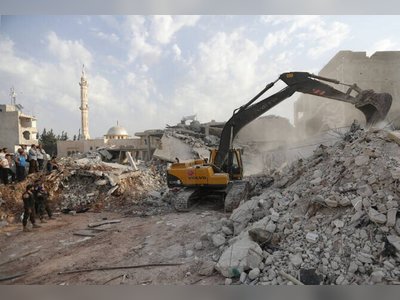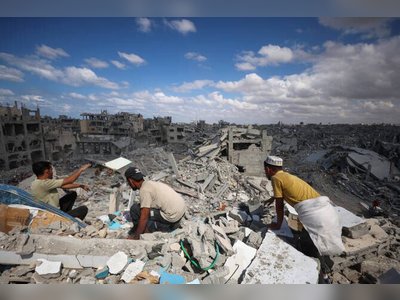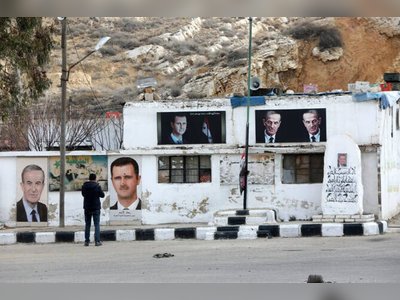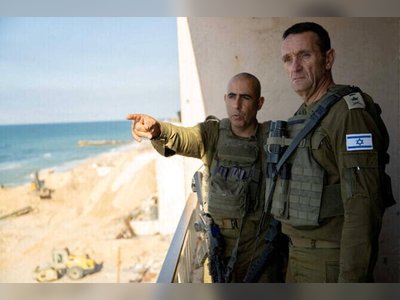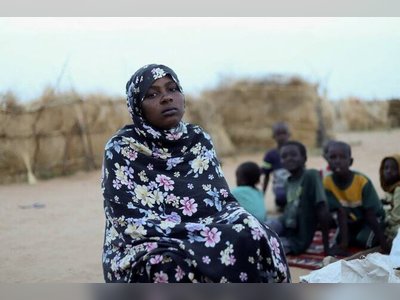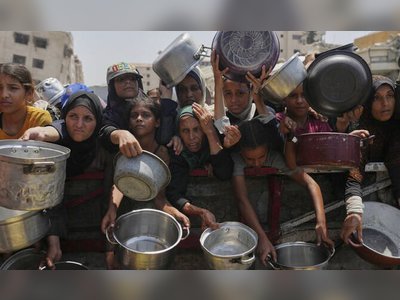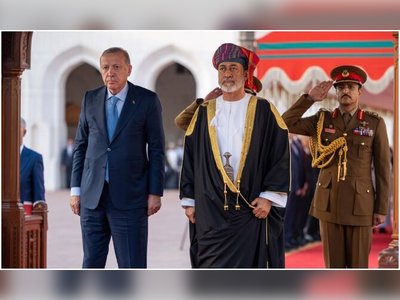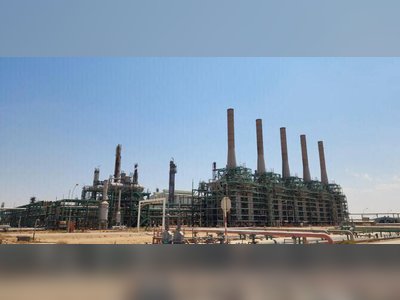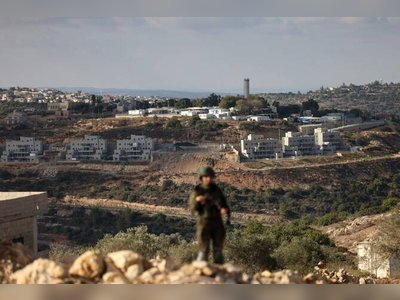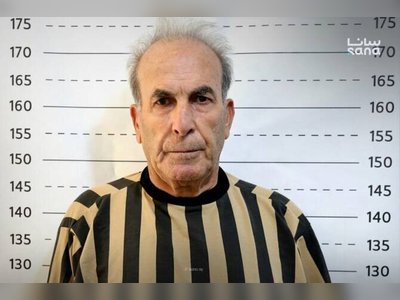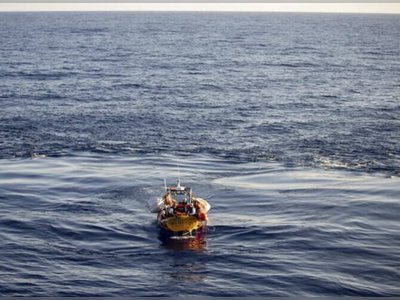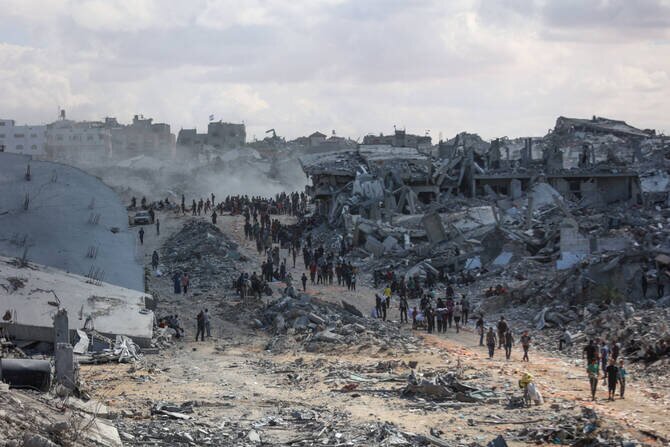
EU Leaders Seek More Active Role in Gaza Amid Tense Relations with Israel
European Union leaders aim to increase their involvement in Gaza and the occupied West Bank, seeking a more substantial role following their limited influence in the recent US-brokered ceasefire between Israel and Hamas.
At a summit held in Brussels focused primarily on Ukraine and Russia, EU heads of state addressed the fragile ceasefire in Gaza and committed to providing support for stability within the war-torn coastal enclave.
The European Union has been the primary provider of aid to Palestinians and maintains strong trading ties with Israel.
Luc Frieden, Luxembourg's prime minister, emphasized the importance of Europe taking an active role rather than merely observing the situation.
He stated that peace remains elusive in Gaza.
Tensions within the 27-nation bloc have intensified due to the war in Gaza, straining relations between Israel and the EU to historic lows.
In September, European Commission President Ursula von der Leyen announced plans to impose sanctions and a partial trade suspension on Israel, aiming to pressure it towards achieving peace in Gaza.
However, momentum for these measures waned following the ceasefire agreement facilitated by US President Donald Trump.
Some European leaders have advocated for maintaining the possibility of sanctions against Israeli cabinet ministers and settlements, as well as a partial trade suspension, to exert influence over Israel's military actions.
Prior to the ceasefire, Israeli Prime Minister Benjamin Netanyahu had expressed a sense of irrelevance and weakness from Europe in addressing the situation.
The EU has since sought to actively participate in diplomatic efforts concerning Gaza, with the EU's top diplomat Kaja Kallas advocating for their involvement rather than merely providing financial support.
The EU has provided crucial assistance to the Palestinian Authority, which governs parts of the occupied West Bank.
At the summit's conclusion, EU leaders pledged to deliver humanitarian aid to Gaza potentially through a maritime route from Cyprus.
They also suggested extending a West Bank police support program to bolster stabilization efforts in line with the current 20-point ceasefire plan.
The EU has requested membership in the 'Board of Peace' transitional oversight body associated with the ceasefire plan.
Additionally, Denmark and Germany are participating in the US-led stabilization effort overseeing and implementing the Gaza ceasefire, with their flags raised at a Civil-Military Coordination Center in southern Israel.
The European Border Assistance Mission in Rafah, located on the Gaza-Egypt border, commenced in 2005.
In January, it deployed security border police experts from Italy, Spain, and France.
During the February-March ceasefire period, the mission facilitated the exit of 4,176 individuals from the Gaza Strip, including 1,683 medical patients.
However, these efforts were suspended when hostilities resumed.
Individual EU nations have also taken measures to pressure Israel independently, as protests have erupted in cities such as Barcelona and Oslo.
Many of these countries have recognized a Palestinian state.
Spain has intensified its opposition to Israel's actions in Gaza, with Prime Minister Pedro Sánchez describing the war as 'genocide' and announcing plans to impose an arms embargo and block fuel deliveries destined for Israel via Spanish ports.
In August, Slovenia implemented an arms embargo, marking the first instance of such a measure by an EU member state.
National broadcasters have also sought to exclude Israel from participating in the Eurovision Song Contest.
A vote will be held in November to determine whether Israel can take part in next year's event, amidst growing calls for their exclusion due to the conflict between Israel and Hamas.
The European Union has been the primary provider of aid to Palestinians and maintains strong trading ties with Israel.
Luc Frieden, Luxembourg's prime minister, emphasized the importance of Europe taking an active role rather than merely observing the situation.
He stated that peace remains elusive in Gaza.
Tensions within the 27-nation bloc have intensified due to the war in Gaza, straining relations between Israel and the EU to historic lows.
In September, European Commission President Ursula von der Leyen announced plans to impose sanctions and a partial trade suspension on Israel, aiming to pressure it towards achieving peace in Gaza.
However, momentum for these measures waned following the ceasefire agreement facilitated by US President Donald Trump.
Some European leaders have advocated for maintaining the possibility of sanctions against Israeli cabinet ministers and settlements, as well as a partial trade suspension, to exert influence over Israel's military actions.
Prior to the ceasefire, Israeli Prime Minister Benjamin Netanyahu had expressed a sense of irrelevance and weakness from Europe in addressing the situation.
The EU has since sought to actively participate in diplomatic efforts concerning Gaza, with the EU's top diplomat Kaja Kallas advocating for their involvement rather than merely providing financial support.
The EU has provided crucial assistance to the Palestinian Authority, which governs parts of the occupied West Bank.
At the summit's conclusion, EU leaders pledged to deliver humanitarian aid to Gaza potentially through a maritime route from Cyprus.
They also suggested extending a West Bank police support program to bolster stabilization efforts in line with the current 20-point ceasefire plan.
The EU has requested membership in the 'Board of Peace' transitional oversight body associated with the ceasefire plan.
Additionally, Denmark and Germany are participating in the US-led stabilization effort overseeing and implementing the Gaza ceasefire, with their flags raised at a Civil-Military Coordination Center in southern Israel.
The European Border Assistance Mission in Rafah, located on the Gaza-Egypt border, commenced in 2005.
In January, it deployed security border police experts from Italy, Spain, and France.
During the February-March ceasefire period, the mission facilitated the exit of 4,176 individuals from the Gaza Strip, including 1,683 medical patients.
However, these efforts were suspended when hostilities resumed.
Individual EU nations have also taken measures to pressure Israel independently, as protests have erupted in cities such as Barcelona and Oslo.
Many of these countries have recognized a Palestinian state.
Spain has intensified its opposition to Israel's actions in Gaza, with Prime Minister Pedro Sánchez describing the war as 'genocide' and announcing plans to impose an arms embargo and block fuel deliveries destined for Israel via Spanish ports.
In August, Slovenia implemented an arms embargo, marking the first instance of such a measure by an EU member state.
National broadcasters have also sought to exclude Israel from participating in the Eurovision Song Contest.
A vote will be held in November to determine whether Israel can take part in next year's event, amidst growing calls for their exclusion due to the conflict between Israel and Hamas.
